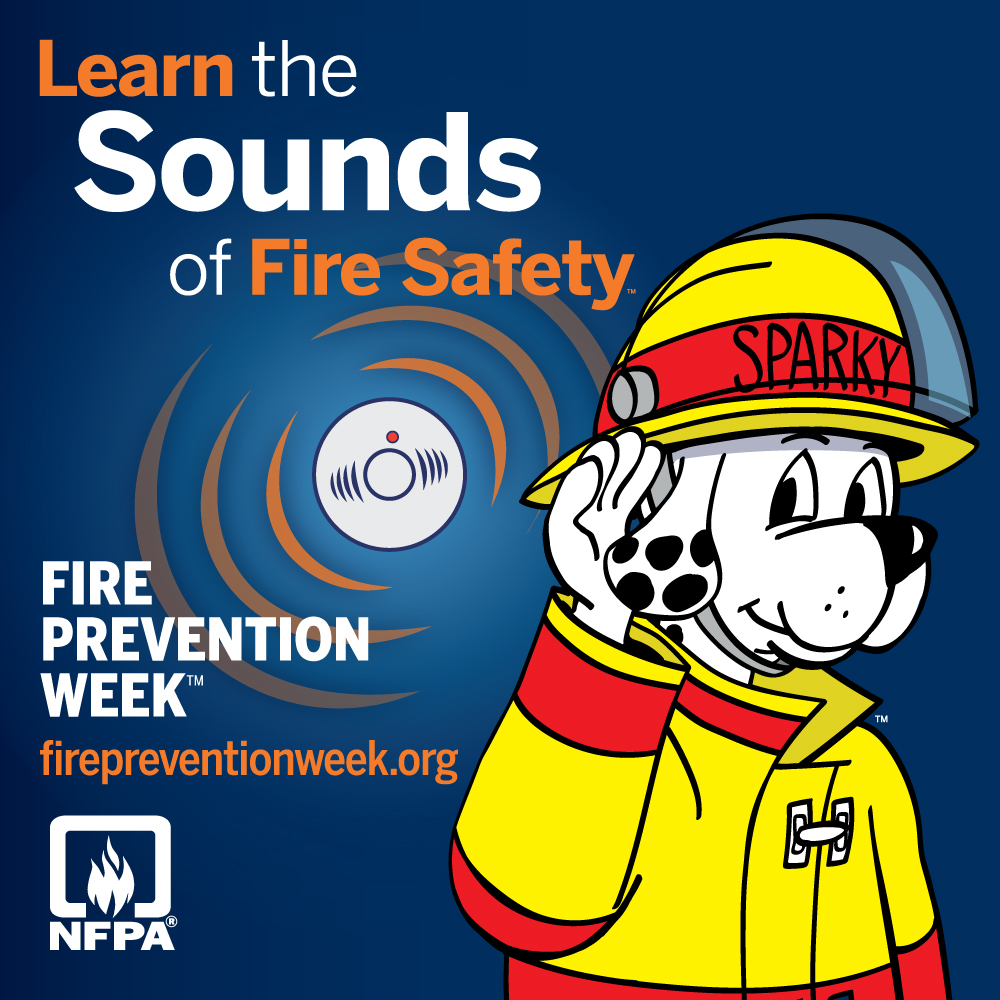‘LEARN THE SOUNDS OF FIRE SAFETY’ DURING FIRE PREVENTION WEEK

The North Lake Tahoe Fire Protection District (NLTFPD) is teaming up with the National Fire Protection Association® (NFPA®)—the official sponsor of Fire Prevention Week for more than 90 years—to promote this year’s Fire Prevention WeekTM campaign, “Learn the Sounds of Fire SafetyTM.” This year’s campaign, October 3-9th, works to educate everyone about simple but important actions they can take to keep themselves and those around them safe.
“What do the sounds mean? Is there a beep or a chirp coming out of your smoke or carbon monoxide alarm? Knowing the difference can save you, your home, and your family,” said Lorraine Carli, vice-president of outreach and advocacy at NFPA.
NLTFPD encourages all residents to embrace the 2021 Fire Prevention Week theme. “It’s important to learn the different sounds of smoke and carbon monoxide alarms. When an alarm makes noise—a beeping sound or a chirping sound—you must take action!” said Jennifer Donohue, Fire Marshal. “Make sure everyone in the home understands the sounds of the alarms and knows how to respond. To learn the sounds of your specific smoke and carbon monoxide alarms, check the manufacturer’s instructions that came in the box, or search the brand and model online.”
NLTFPD wants to share safety tips to help you “Learn the Sounds of Fire Safety”
- A continuous set of three loud beeps—beep, beep, beep—means smoke or fire. Get out, call 9-1-1, and stay out.
- A single chirp every 30 or 60 seconds means the battery is low and must be changed.
- All smoke alarms must be replaced after 10 years.
- Chirping that continues after the battery has been replaced means the alarm is at the end of its life and the unit must be replaced.
- Make sure your smoke and CO alarms meet the needs of all your family members, including those with sensory or physical disabilities.
NLTFPD will be hosting station tours for our elementary school students next week focusing on home fire safety and the importance of recognizing the sounds of fire safety.
For more general information about Fire Prevention Week and fire prevention in general, visit www.fpw.org.